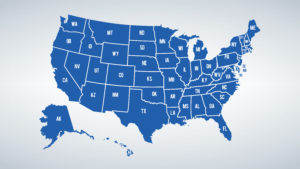Tax Tips for New Ecommerce Entrepreneurs
Tax Tips for New Ecommerce Entrepreneurs
New ecommerce entrepreneurs can find them confused and confounded by the tax and accounting requirements of their venture. And that’s a shame: If someone’s spotted a great new category and successfully built a web presence, heck, that someone shouldn’t find themselves bogged down with the accounting minutia. The entrepreneur should focus on increasing traffic, expanding margins, and growing cash profits.
With that in mind, I offer up the following tax and accounting tips:
Tip #1: Don’t Incorporate
A true corporation—whether a C corporation or an S corporation—saddles your business with more complicated tax accounting and a bunch of state filing requirements. You don’t want to deal with this red tape—or at least not until you’re profitable.
Instead, operate your business as a sole proprietorship. If you’re concerned about legal liability protection, note that you can setup a one-owner limited liability company, or LLC. A one owner LLC is treated as a sole proprietorship for income tax purposes.
Tip #2: Start Your Business Before Making Investments
Expenditures you make before you’re actually in business-in other words, before you’ve got a business license and before you’re selling or trying to sell your stuff—aren’t very deductible.
Specifically, you can probably deduct the first $5,000 of these expenses. But any amounts in excess of the $5,000 must be amortized over the next fifteen years.
What this means is that you want to start your business before you start spending money on advertising, training, web development, accountants and lawyers and so on.
Tip #3: Automate Your Bookkeeping & Accounting
By law—and some people don’t know this—you’re required to maintain an accounting system that lets you clearly measure your income. As a practical matter, this means you need to use a product like Quicken or QuickBooks.
But you ought to go one better than simply using desktop accounting software. Make sure that you’re taking advantage of online banking and bill payment features which integrate your accounting system with your banking. As much as is possible, for example, you want to be able to move money from PayPal to your bank to QuickBooks simply by typing a few keys or clicking your mouse a few times.
Tip #4: Hire a Payroll Service Before Hiring Employees
Many successful ecommerce business owners can run their operations without employees. And if that’s true for you, hey, congratulations. If and when you do need employees, however, don’t try to handle the payroll yourself. Outsource the payroll to one of the large payroll service bureaus like ADP, Payroll, or QuickBooks.
These services are expensive. Figure $1000 to $2000 per year. But the services let you avoid the bookkeeping nightmare called payroll and prevent you from getting into payroll tax trouble.
Tip #5: Consider S Corporation Status After You’re Profitable
I’ve written and talked much about how S corporations save taxpayers money and how the right way to set up an S corporation is first create a limited liability company and then ask the IRS to treat the LLC as an S corporation for tax purposes.
Let me review the basics here again, however. Suppose that you’re making $90,000 a year off your web site. If you just treat your business as a sole proprietorship—or an LLC treated as a sole proprietorship—you might pay $12,000 in income taxes on the $90,000 and then another 15.3% self-employment tax, or roughly $13,500 on the $90,000.
If you set up an LLC and have the LLC treated as an S corporation, you’ll still pay the same $12,000 in income taxes. But you’ll only pay the 15.3% self-employment tax on that portion of the profit that you categorize as wages. If you categorize, say, $50,000 of the profits as wages, you’ll pay $7,500 in self-employment taxes. (The other $40,000 in remaining profits, by the way, gets paid out as a dividend-like “distribution.”)
Note, then, that the S corporation saves you roughly $6,000 every year. Sweet, right?
Texas LLC formation expert Stephen L. Nelson CPA has written more than 150 books. Formerly an adjunct tax professor at Golden Gate University, Nelson is also the author of QuickBooks for Dummies.
—————————————————————————————————————————————————————————————————————
We hope you found this article about “Tax Tips for New Ecommerce Entrepreneurs” helpful. If you have questions or need expert tax or family office advice that’s refreshingly objective (we never sell investments), please contact us or visit our Family office page or our website at www.GROCO.com. Unfortunately, we no longer give advice to other tax professionals gratis.
To receive our free newsletter, contact us here.
Subscribe our YouTube Channel for more updates.

Alan Olsen, is the Host of the American Dreams Show and the Managing Partner of GROCO.com. GROCO is a premier family office and tax advisory firm located in the San Francisco Bay area serving clients all over the world.
Alan L. Olsen, CPA, Wikipedia Bio

GROCO.com is a proud sponsor of The American Dreams Show.

The American Dreams show was the brainchild of Alan Olsen, CPA, MBA. It was originally created to fill a specific need; often inexperienced entrepreneurs lacked basic information about raising capital and how to successfully start a business.
Alan sincerely wanted to respond to the many requests from aspiring entrepreneurs asking for the information and introductions they needed. But he had to find a way to help in which his venture capital clients and friends would not mind.
The American Dreams show became the solution, first as a radio show and now with YouTube videos as well. Always respectful of interview guest’s time, he’s able to give access to individuals information and inspiration previously inaccessible to the first-time entrepreneurs who need it most.
They can listen to venture capitalists and successful business people explain first-hand, how they got to where they are, how to start a company, how to overcome challenges, how they see the future evolving, opportunities, work-life balance and so much more..
American Dreams discusses many topics from some of the world’s most successful individuals about their secrets to life’s success. Topics from guest have included:
Creating purpose in life / Building a foundation for their life / Solving problems / Finding fulfillment through philanthropy and service / Becoming self-reliant / Enhancing effective leadership / Balancing family and work…

MyPaths.com (Also sponsored by GROCO) provides free access to content and world-class entrepreneurs, influencers and thought leaders’ personal success stories. To help you find your path in life to true, sustainable success & happiness. It’s mission statement:
In an increasingly complex and difficult world, we hope to help you find your personal path in life and build a strong foundation by learning how others found success and happiness. True and sustainable success and happiness are different for each one of us but possible, often despite significant challenges.
Our mission at MyPaths.com is to provide resources and firsthand accounts of how others found their paths in life, so you can do the same.
India Teaming Up With United States in Joint Effort to Find Hidden Cash
India is reportedly going after so called “black money” which Indian citizens who are living abroad, are apparently hiding in offshore accounts, including here in the United States. According to reports, the Indian Government believes that as much as $350 billion is hiding in unreported bank accounts and other financial institutions. India is already gathering…
Is Your Company in the Market for a Fairness Opinion?
Is Your Company in the Market for a Fairness Opinion? Is that really fair? In my opinion, yes it is. Obviously a fairness opinion is much more than that in the financial and business world. So what is a fairness opinion, exactly? One of the final parts of any sale or merger is a fairness…
Communication Between Managers and their Employees
By Emily Topham Communication Between Managers and Their Employees Managers have a daunting task—finding the right level of communication between them and their employees. It can be difficult for new managers to transition into the level of communication that is required by a leadership position. But discovering how to communicate well can make or…
Which States Are Good, and Bad, for Taxes?
How attached are you to the state you live in? Although most people would rather not relocate, where a person lives can actually make a huge difference in his or her tax bill. That’s because Kiplinger recently released its list of the most and least “tax-friendly” states when it comes to taxes. The business publisher…



